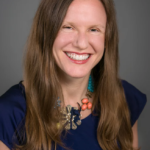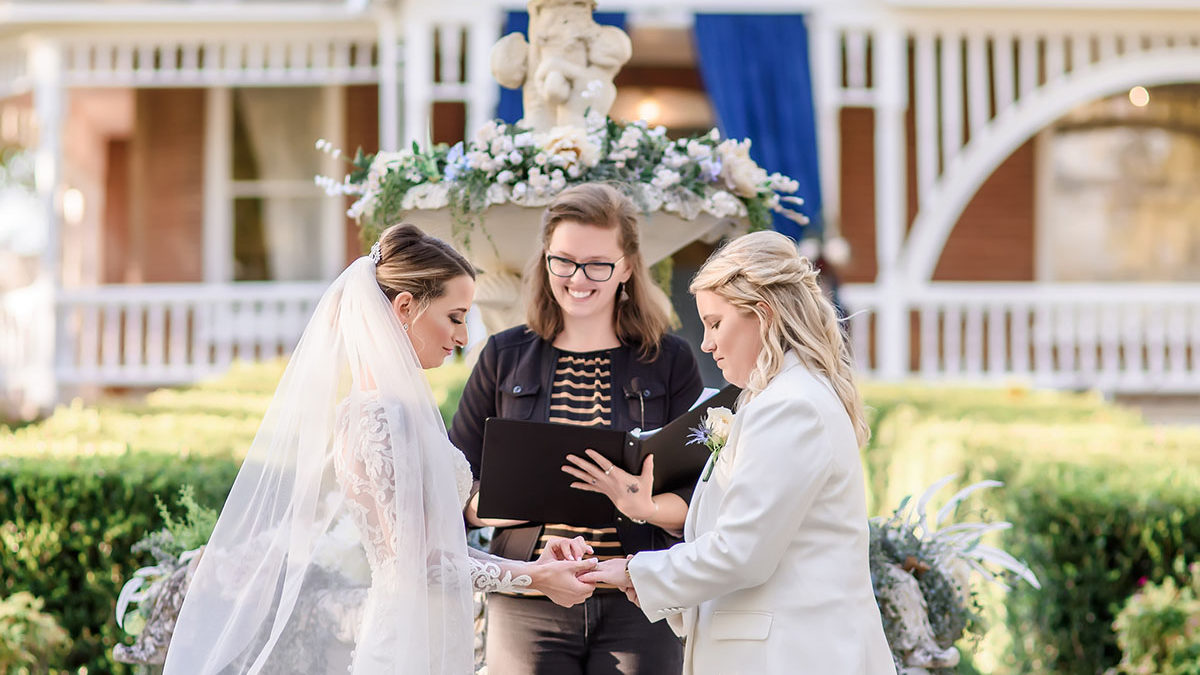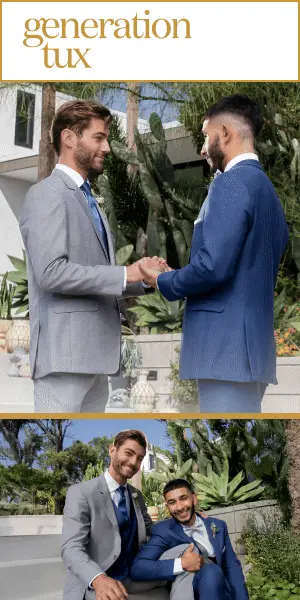Congratulations! You have found your beloved and are ready to get married. As a queer rabbi who recently got married to my wife, I know how important it is to find vendors who are LGBTQ-friendly. This is especially true when looking for an officiant. You want to find someone who you and your partner both really trust and respect.
First, find at least two or three officiants to interview. A great way to find an LGBTQ-friendly wedding officiant is from the folks you know. Ask your friends or members of your community who they trust.
You can also check out different referral sites. There are some great sites with LGBTQ-friendly clergy. Check out the options on InterfaithFamily and Equally Wed.
Here are 6 questions to ask your officiant before booking them for your wedding ceremony:
1. Are you available?
It’s really important to think ahead. When picking your date, venue and other vendors, you want to be sure to find out if the officiant if available on that day and at the time of your ceremony. Be sure that they can travel to the site of the ceremony. Don’t wait until two weeks before the big day to find someone. Most officiants book just as quickly as your vendors—especially during wedding seasons. I’ve seen several couples really struggle to find someone last minute because it was not on their to-do list.
RELATED: 4 REASONS WE’RE HAVING OUR FRIEND OFFICIATE OUR LGBTQ+ WEDDING
2. How many times do you generally meet with a couple before the ceremony?
Some officiants meet the couple once, while others will meet five to 10 times in order to get to know them as individuals and as a couple. Some officiants will also include pre-marital counseling sessions as part of the planning process. I usually meet with couples three to six times to plan a very personalized ceremony. My sessions also include pre-marital counseling.
3. How much time are you willing to spend with us and/or members of our families?
Weddings can be stressful and can bring out challenging family dynamics. Some LGBTQ+ couples experience homophobia and need support during their wedding planning process. It is good to find if your officiant can support you when important issues, conflicts and family drama arise.
4. Will you be able to create a personalized ceremony?
Some officiants take the time to create a personalized ceremony for you and your partner. Others use a generic template. If you and your partner want to co-create the content of the ceremony, it’s important to find out if your officiant will work with you on that. Will they help you write vows? Will they help you incorporate rituals, poems and readings into the ceremony? Do they have rules or restrictions or customs you should know about?
5. How much do you charge?
As a rabbi living in Atlanta, I know that there is a wide range of fees for wedding officiants. Most clergy charge between $200-2,000. Yes, this is a wide range! Some clergy are paid by their place of worship and you must be a member to use their services, some take donations while others work as clergy outside of a place of worship and charge fees. The fees can include travel costs and pre-marital counseling sessions and vary by region.
6. Do you perform interfaith weddings?
Many LGBTQ+ couples are in interfaith relationships and it is important to find an officiant who respects your relationship. If you would like an officiant to co-officiate with a clergy member of another faith, ask upfront. You can also fill out InterfaithFamily’s form for help finding an interfaith-friendly rabbi.
After your conversation with a potential officiant, check in with your partner. Did this feel like a good fit? The most important thing is for you and your partner to feel completely comfortable, supported and respected.
 Rabbi Malka Packer-Monroe is a Reconstructionist Rabbi and life cycle officiant in Atlanta, Georgia. She is the Founding Director of InterfaithFamily/Atlanta, a Jewish nonprofit organization that empowers and supports interfaith couples and families. Rabbi Malka helps individuals and families discover deeper meaning, joy and spirituality in their daily lives. Her passion is creating inspiring and relevant rituals and ceremonies and invigorating Jewish practices. Inclusivity is at the heart of Malka’s rabbinate. Her rich knowledge of tradition, playful spirit and authentic connection to Judaism guide her desire to collaborate in creating meaningful experiences. Malka has been working with clients in recovery from addiction while educating members of her community about 12-step recovery since 2005. As director of InterfaithFamily/Atlanta, Rabbi Malka provides guidance, resources and trainings for clergy, lay leaders and Jewish organizations to foster more welcoming and inclusive communities. Malka moved to Atlanta with her wife, Mercy, in 2015.
Rabbi Malka Packer-Monroe is a Reconstructionist Rabbi and life cycle officiant in Atlanta, Georgia. She is the Founding Director of InterfaithFamily/Atlanta, a Jewish nonprofit organization that empowers and supports interfaith couples and families. Rabbi Malka helps individuals and families discover deeper meaning, joy and spirituality in their daily lives. Her passion is creating inspiring and relevant rituals and ceremonies and invigorating Jewish practices. Inclusivity is at the heart of Malka’s rabbinate. Her rich knowledge of tradition, playful spirit and authentic connection to Judaism guide her desire to collaborate in creating meaningful experiences. Malka has been working with clients in recovery from addiction while educating members of her community about 12-step recovery since 2005. As director of InterfaithFamily/Atlanta, Rabbi Malka provides guidance, resources and trainings for clergy, lay leaders and Jewish organizations to foster more welcoming and inclusive communities. Malka moved to Atlanta with her wife, Mercy, in 2015.
Guest Writer
MOST VIEWED STORIES
- The Rise of Weddings With Long-Lasting Investments: Benefits Beyond The Big Day
- How to have a green wedding that Mother Earth would attend
- Simplify wedding communication with digital engagement announcements and thank you cards
- A Spiritual and Earthy Elopement at Lassen Volcanic National Park
- Food Trucks, Craft Booze and Cultural Fusions: How New England Weddings Are Changing the Game




























